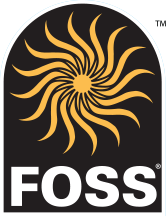Full Option Science System (FOSS)
Impact
More than half of California students attend schools that have adopted the hands-on, inquiry-based FOSS curriculum. Studies show that, when coupled with strong professional development for teachers, FOSS has significantly improved science teaching and, by extension, students’ understanding of science.
Accomplished
- Need Accomplished
- Evaluation Accomplished
- Sustainability Accomplished
- Replication & Scalability Accomplished
- Partnerships Accomplished
- Capacity Accomplished
- Challenging & Relevant Content Accomplished
- STEM Practices Accomplished
- Inspiration Accomplished
- Under-Represented Groups Accomplished

A multi-year partnership with the GE Foundation has allowed us to transform K-8 science teaching from textbook/worksheet science to active student-centered teaching and learning using curriculum materials that are primarily [from the Full Option Science System]. Teachers report that the units are instructionally friendly, and support critical thinking and deep student understanding. Students report that they enjoy the active learning through investigation and feel like scientists!”
Jefferson County Public Schools, Kentucky
Design Principles
The programs in this database clear a high bar. STEMworks reviewed each program against the Design Principles for Effective STEM Philanthropy. Programs must be Accomplished () across all Design Principles, or be Developing (
) in a maximum of three areas.
Overarching Principles
-
Need Accomplished
Identify and target a compelling and well-defined need.
-
Evaluation Accomplished
Use rigorous evaluation to continuously measure and inform progress towards the compelling need identified.
-
Sustainability Accomplished
Ensure work is sustainable.
-
Replication & Scalability Accomplished
Demonstrate replicability and scalability.
-
Partnerships Accomplished
Create high impact partnerships.
-
Capacity Accomplished
Ensure organizational capacity to achieve goals.
STEM Principles
-
Challenging & Relevant Content Accomplished
Offer challenging and relevant STEM content for the target audience.
-
STEM Practices Accomplished
Incorporate and encourage STEM practices.
-
Inspiration Accomplished
Inspire interest and engagement in STEM.
-
Under-Represented Groups Accomplished
Identify and address the needs of under-represented groups.
Program Overview
Full Option Science System (FOSS) is a research-based science curriculum for grades K-8 developed at the Lawrence Hall of Science, University of California, Berkeley, and distributed by Delta Education. FOSS is also an ongoing research project dedicated to improving the learning and teaching of science. FOSS has three goals: 1) Scientific literacy: providing students with science experiences that offer a foundation for more advanced understanding of core science ideas. The program is organized in learning progressions and aims to prepare students for life in an increasingly complex scientific and technological world. 2) Instructional efficiency: giving all teachers a complete, cohesive, flexible, easy-to-use science program that reflects current research on teaching and learning, including student discourse, argumentation, writing to learn, and reflective thinking. FOSS is designed to make active learning in science engaging for teachers as well as for students. 3) Systemic reform: offering schools and school systems a program that addresses the community’s science achievement standards. FOSS prepares students by helping them acquire the knowledge and thinking capacity appropriate for world citizens. With the initial support of the National Science Foundation and continued support from the University of California and Delta Education, the FOSS Program aims to provide meaningful science education for all students in diverse American classrooms and to prepare them for life in the 21st century.
Funders and Partners
FOSS is a project of the Lawrence Hall of Science, University of California, Berkeley. FOSS is published and distributed by Delta Education (a part of School Specialty Science). FOSS research was supported, in part, by the National Science Foundation.
